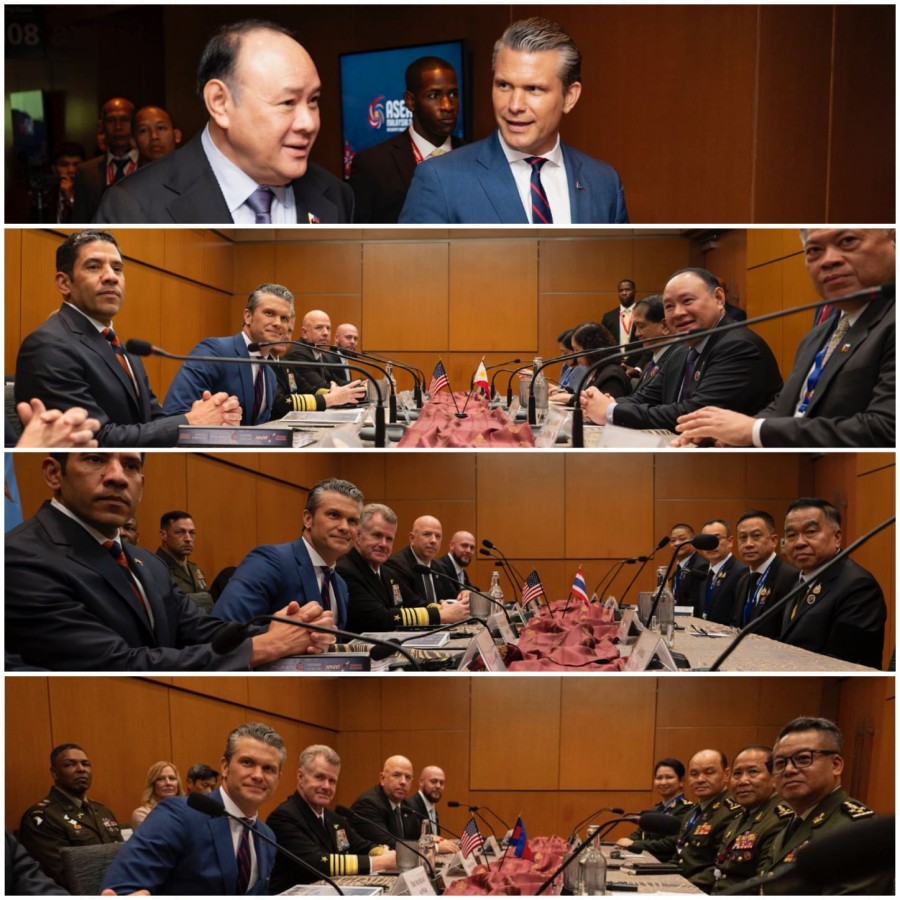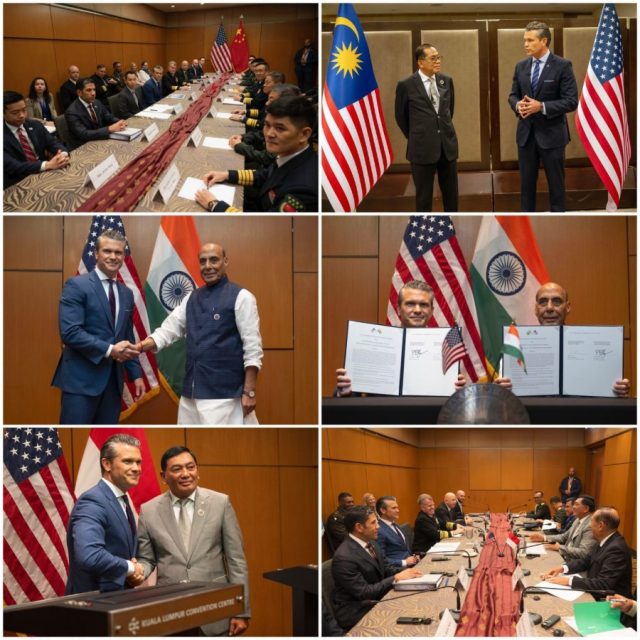KUALA LUMPUR, Friday, October 31, 2025 (WNP): United States Secretary of War Pete Hegseth held a series of high-level meetings with defense leaders from across Asia on the sidelines of the ASEAN Defense Ministers’ Meeting Plus (ADMM+), reaffirming Washington’s commitment to regional stability and its “peace through strength” strategy in the Indo-Pacific.
In one of the most closely watched engagements, Secretary Hegseth met with China’s Minister of National Defense, Admiral Dong Jun, for what he described as a “good and constructive” discussion. The meeting followed their earlier virtual dialogue held on September 9.
Hegseth said he emphasized the importance of maintaining a “balance of power” in the Indo-Pacific while voicing U.S. concerns over China’s actions in the South China Sea, around Taiwan, and toward U.S. allies and partners in the region.
“The United States does not seek conflict,” he said, “but we will continue to stoutly defend our interests and ensure we have the capabilities in the region to do so.”
The U.S. defense chief also met with Malaysia’s Minister of Defense, Khaled bin Nordin, to commemorate the signing of the Kuala Lumpur (KL) Accords — a new framework aimed at enhancing maritime security cooperation and promoting peace through deterrence. Calling Khaled “a clear-eyed leader,” Hegseth said he looks forward to welcoming him to the Pentagon next year.
In another major development, Hegseth and Indian Defense Minister Rajnath Singh signed a 10-year U.S.–India Defense Framework Agreement, advancing what he described as “a cornerstone for regional stability and deterrence.” The agreement includes deeper coordination on intelligence sharing, technology cooperation, and defense innovation.
The U.S. official also held bilateral meetings with Indonesia’s Defense Minister Sjafrie Sjamsoeddin, Philippine Secretary of National Defense Gilberto Teodoro, Thailand’s Minister of Defence General Nattaphon, and Cambodia’s Deputy Prime Minister Tea Seiha.

Hegseth reaffirmed the U.S. commitment to strengthening interoperability, enhancing defense industrial cooperation, and expanding joint training across new strategic domains. He also announced that the United States and Cambodia would restart their premier bilateral military exercise, signaling a renewed defense engagement between the two countries.
“The KL Accords and our engagements across Southeast Asia underscore President Trump’s unwavering commitment to peace through strength,” Hegseth said, adding that the U.S. would continue to work “relentlessly to reestablish deterrence in the South China Sea and strengthen alliances across the Indo-Pacific.”
Defense analysts view the series of meetings as a major diplomatic push by Washington to bolster defense partnerships amid rising tensions in the region and to assert its leadership role in maintaining a free and open Indo-Pacific.




